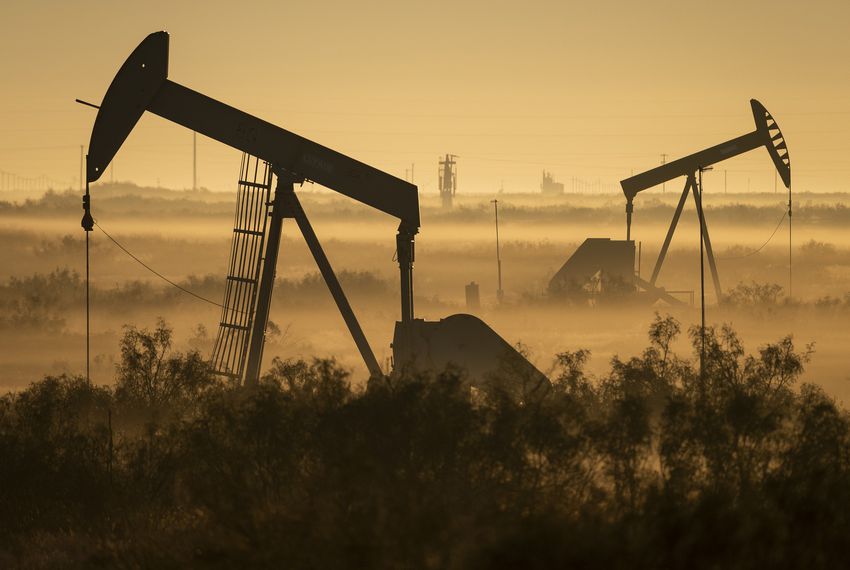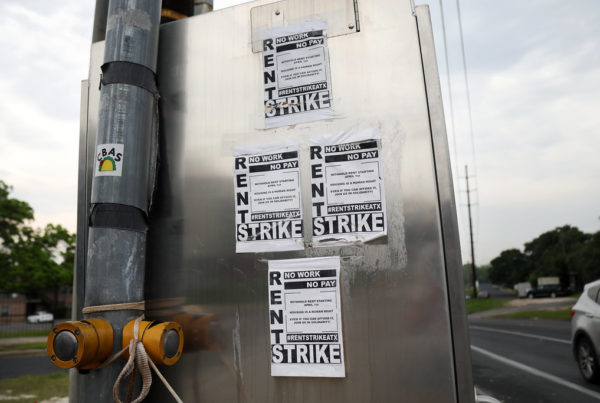When Texas oil dipped into negative territory for the first time ever last month, experts said it was in part because of a trading deadline.
That’s because when you buy a barrel of oil, you’re actually buying a contract promising that oil will be delivered at a later date. Earlier in the year traders saw low prices for those contracts and bought up the ones guaranteeing oil delivery in May.
However, the traders didn’t want the oil. They wanted to resell the contract at a better price, but those contracts closed on April 21st.
“There was a rush for the exit,” said Ed Hirs, University of Houston energy economist. “They had overbought the market. They can’t take delivery of the oil, and so they had to sell.”
On April 20, traders worked to quickly sell those contracts, and some even took a loss and paid as much as $37 to get rid of them. Now contracts for oil set to be delivered in June are coming up against that same deadline on May 19.
Experts don’t expect prices to dip below zero again, but there are still a few things they’re watching.
Are there enough places to store oil?
Storage fears helped drive prices negative in April. Even before the pandemic, there was an oversupply of oil. Then the COVID-19 crisis, in addition to an international price war, made it harder to find storage.
“Storage is going to be a problem, but not to the extent that it was in April,” said Elizabeth Gerbel, CEO of oil consulting firm EAG Services.
Most of the crude oil produced in Texas is stored in Cushings, Oklahoma. Federal data shows storage there was about 80% full in May.
Gerbel said the storage issue probably won’t push prices negative this time because companies are cutting production.
Still, if fears about storage are renewed over the weekend, it could contribute to a price drop before the June futures contracts close.
Are people making last-minute trades?
As last month’s deadline approached, people holding the May futures contracts — but who did not want to actually take ownership of the oil — quickly tried to offload them. That led to the dramatic price drop.
But there were a couple of indications along the way. First, the trading price for oil was already low on the international markets the weekend before the deadline.
Then as traders realized they needed to get rid of those contracts, and fast, they became willing to do it at a lower and lower price. If traders make the same mistake, that would most likely happen on Monday, May 18.
But they’re not expected to.
“I certainly think they’ve learned their lesson,” Hirs said. “We may see some pressure as the contract reaches expiration, but it won’t go negative this time.”
How is COVID-19 influencing oil demand?
Before the coronavirus pandemic, oil demand was already lower than normal thanks to a warm winter. Then things started to shut down, and by mid-April many states and countries had adopted some sort of stay-at-home guidelines. Global oil demand plummeted.
That made oil less valuable to trade last month.
“Since then, we’ve had the country begin to open up,” said Michael O’Leary, who focuses on oil and gas at law firm Hunton Andrews Kurth.
There are more cars on the road. Businesses are slowly ramping back up. O’Leary said supply and demand for oil still isn’t in balance, but demand has gone up a bit since April.
However, that could change if the pandemic gets worse, and demand could take another hit that forces prices to plunge.
What do current oil prices mean for Houston?
Oil prices may stay above zero, but they are still much lower than what companies need to make a profit.
“Most of the companies in Texas, especially those in the Permian, really do need to see $40 a barrel at the wellhead,” Hirs said.
Instead, West Texas Crude has been trading between $20 and $25 per barrel. Experts say with prices that low to expect more bankruptcies and layoffs.
“This will all reverberate through the Houston economy as the executives and the workers sell their homes and try and find something else to do,” Hirs said. “Which under the COVID-19 recession, is really going to be very difficult.”
If you found the reporting above valuable, please consider making a donation here. Your gift helps pay for everything you find on texasstandard.org and Houston Public Media. Thanks for donating today.
















